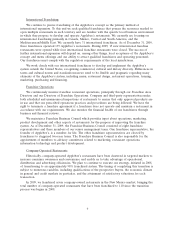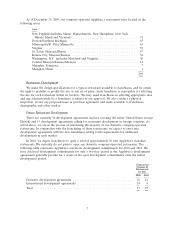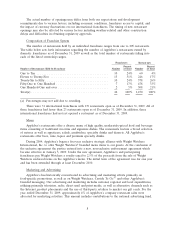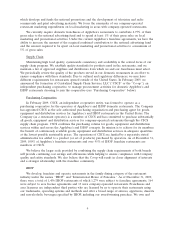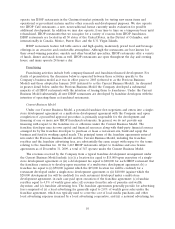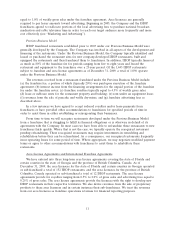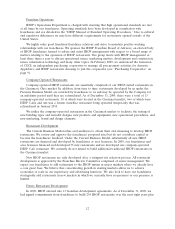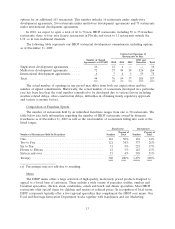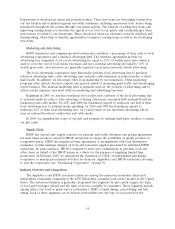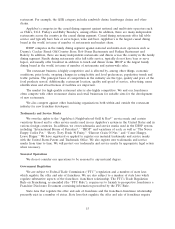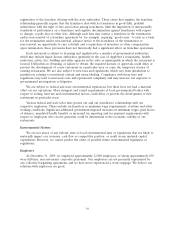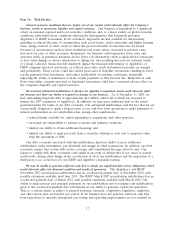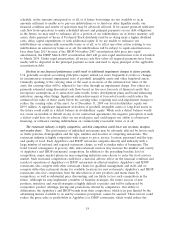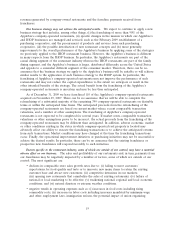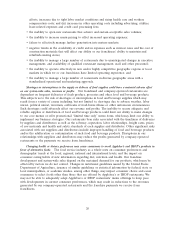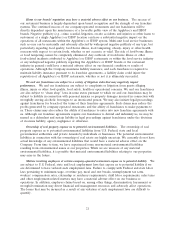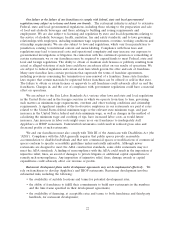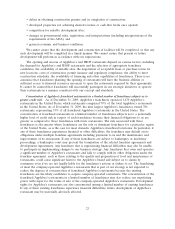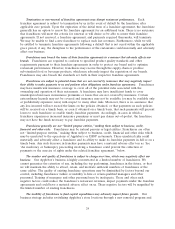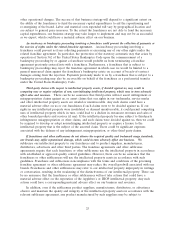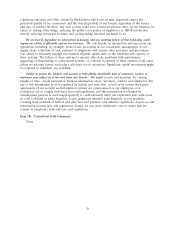IHOP 2009 Annual Report Download - page 35
Download and view the complete annual report
Please find page 35 of the 2009 IHOP annual report below. You can navigate through the pages in the report by either clicking on the pages listed below, or by using the keyword search tool below to find specific information within the annual report.registration of the franchise offering with the state authorities. Those states that regulate the franchise
relationship generally require that the franchisor deal with its franchisees in good faith, prohibit
interference with the right of free association among franchisees, limit the imposition of unreasonable
standards of performance on a franchisee and regulate discrimination against franchisees with respect
to charges, royalty fees or other fees. Although such laws may restrict a franchisor in the termination
and/or non-renewal of a franchise agreement by, for example, requiring ‘‘good cause’’ to exist as a basis
for the termination and/or non-renewal, advance notice to the franchisee of the termination or
non-renewal, an opportunity to cure a default and a repurchase of inventory or other compensation
upon termination, these provisions have not historically had a significant effect on franchise operations.
Each restaurant is subject to licensing and regulation by a number of governmental authorities,
which may include liquor license authorities (primarily in the case of Applebee’s restaurants), health,
sanitation, safety, fire, building and other agencies in the state or municipality in which the restaurant is
located. Difficulties in obtaining, or failure to obtain, the required licenses or approvals could delay or
prevent the development of a new restaurant in a particular area or cause the temporary closure of
existing restaurants. We are also subject to new laws and regulations, which vary from jurisdiction to
jurisdiction, relating to nutritional content and menu labeling. Compliance with these laws and
regulations may lead to increased costs and operational complexity and may increase our exposure to
governmental investigations or litigation.
We are subject to federal and state environmental regulations, but these have not had a material
effect on our operations. More stringent and varied requirements of local governmental bodies with
respect to zoning, land use and environmental factors could delay or prevent the development of new
restaurants in particular areas.
Various federal and state labor laws govern our and our franchisees’ relationships with our
respective employees. These include such matters as minimum wage requirements, overtime and other
working conditions. Significant additional government-imposed increases in minimum wages, paid leaves
of absence, mandated health benefits or increased tax reporting and tax payment requirements with
respect to employees who receive gratuities could be detrimental to the economic viability of our
restaurants.
Environmental Matters
We are not aware of any federal, state or local environmental laws or regulations that are likely to
materially impact our revenues, cash flow or competitive position, or result in any material capital
expenditure. However, we cannot predict the effect of possible future environmental legislation or
regulations.
Employees
At December 31, 2009, we employed approximately 22,900 employees, of whom approximately 650
were full-time, non-restaurant, corporate personnel. Our employees are not presently represented by
any collective bargaining agreements and we have never experienced a work stoppage. We believe our
relations with employees are good.
16


